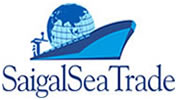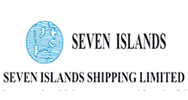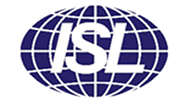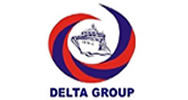India bunker suppliers seize some demand from Sri Lanka on price appeal

Lower bunker prices in India have prompted some demand to shift from Sri Lankan ports to Indian ones, offering reprieve to suppliers reeling under the pain of tax burden and shrinking demand owing to coronavirus-led lockdown, an analysis by S&P Global Platts showed this week.
“Demand is low across the board for bunker fuel and all petroleum products since the lockdown started. This is why we lowered our prices to stimulate demand,” a key supplier based in Mumbai said, adding that this had led some price-sensitive buyers to switch from Colombo to Mumbai for bunker fuel.
India’s lockdown, which first started March 24, has been extended till May 31, although new guidelines have allowed some relaxations in lockdown restrictions.
“The grade we are seeing more inquiries for is LSMGO because of the price difference between the two ports,” the supplier added.
The price spread between Mumbai and Colombo delivered 380 CST bunker fuel has either been at parity or negative since December 23, with the spread hitting minus $8/mt Thursday, Platts data showed.
The spread between Mumbai and Colombo delivered Marine Fuel 0.5%S prices, which was $5/mt March 20, has since then mostly reversed its momentum and was minus $63.50/mt Thursday.
A bunker trader in India said he has seen an uptick in inquiries since the start of 2020, coinciding with the implementation of the International Maritime Organization’s global sulfur limit rule for marine fuels.
Sri Lanka mostly sources its bunker fuel from Singapore and Fujairah, making the fuel costlier. This has also been favorable for India, which is long on gasoil, he said, adding that demand for low sulfur fuels including LSMGO had risen drastically since the implementation of the IMO 2020 rule.
Meanwhile, a Colombo-based supplier said that they were refraining from lowering their offers as they did not want to be pressured to sell.
“We wouldn’t consider lowering our offers to match those in Mumbai because we have to consider our freight cost as well so our delivered prices are high from our end,” he added.
India’s lower bunker fuel prices come even though the goods and services tax, or GST, regime is still in place.
India’s new GST regime came into force on July 1, 2017. Under the old value-added tax regime, bunker sales to foreign-going vessels in India were treated as a deemed export. Even if some states taxed bunker sales to the vessels, the amount was negligible, in the range of 0-5%.
Although the initially imposed 18% GST on bunker fuel was reduced to 5% in October 2017, it has continued to affect bunker sales in the country since then, with some shipowners turning to Sri Lanka for their fuel consumption needs.
Eyes on Hambantota
Sri Lanka’s Hambantota port is expected to play a pivotal role in ramping up the country’s bunker fuel sales.
The port of is located on the southern coast of Sri Lanka, within 10 nautical miles of the main shipping route from Asia to Europe and holding a strategic position on China’s Maritime Silk Road, part of the country’s global development plan the Belt and Road Initiative.
According to the Sri Lanka Ports Authority, the $1.5 billion port has eight tanks capable of storing a total 51,000 cu m of marine fuel for vessels.
Sources said that it may take some time before the port reaches its full potential.
Hambantota International Port Group — a joint venture company formed by the Sri Lankan government and China Merchant Port Holdings, or CM Port — awarded Sinopec Fuel Oil Sales Co. a tender in 2019 to provide marine fuel and other ancillary services to vessels calling and passing through Hambantota.
In April, the Chinese Embassy of Sri Lanka said on its Twitter account that HIP welcomed its first oil tanker — Melody– which berthed at the port to discharge fuel and commence bunkering.
“China Merchant imported about 25,000 mt of bunker fuel in April but we haven’t heard any activity there since then,” another bunker supplier in India said, adding that apart from the global COVID-19 impact, the monsoon season was also likely to hinder operations.
“We haven’t even sent any staff there from China yet so it’s not a matter of the monsoon stalling operations there. There’s also the COVID-19 measures. There is no definite start date for operations,” a source with knowledge of the matter said.
“We are not sure if there are plans to outsource bunkering to other suppliers but there is a high chance that the bunkering will be limited to Sinopec and the JV parties,” the source added.
Source: Platts

































Comments